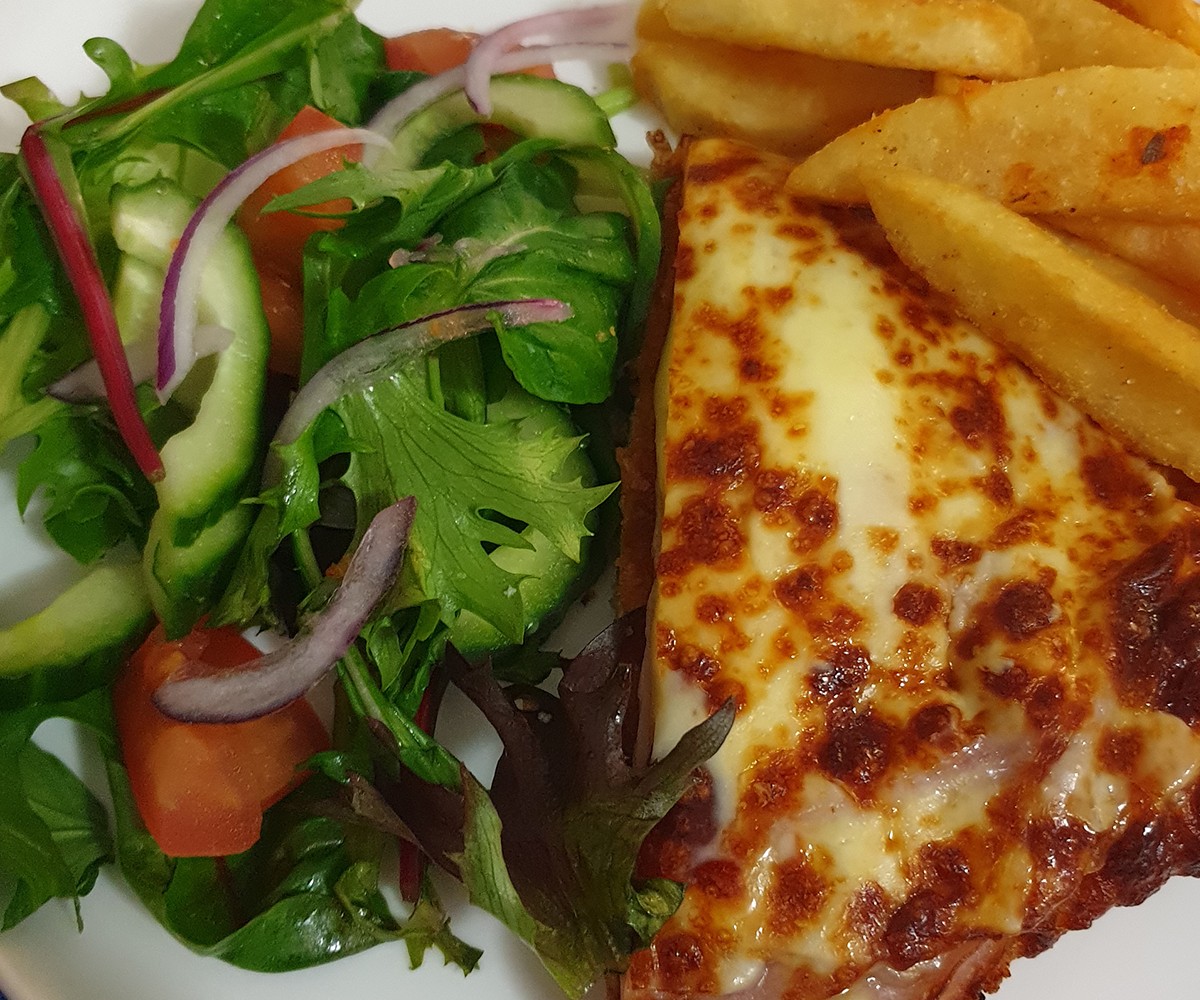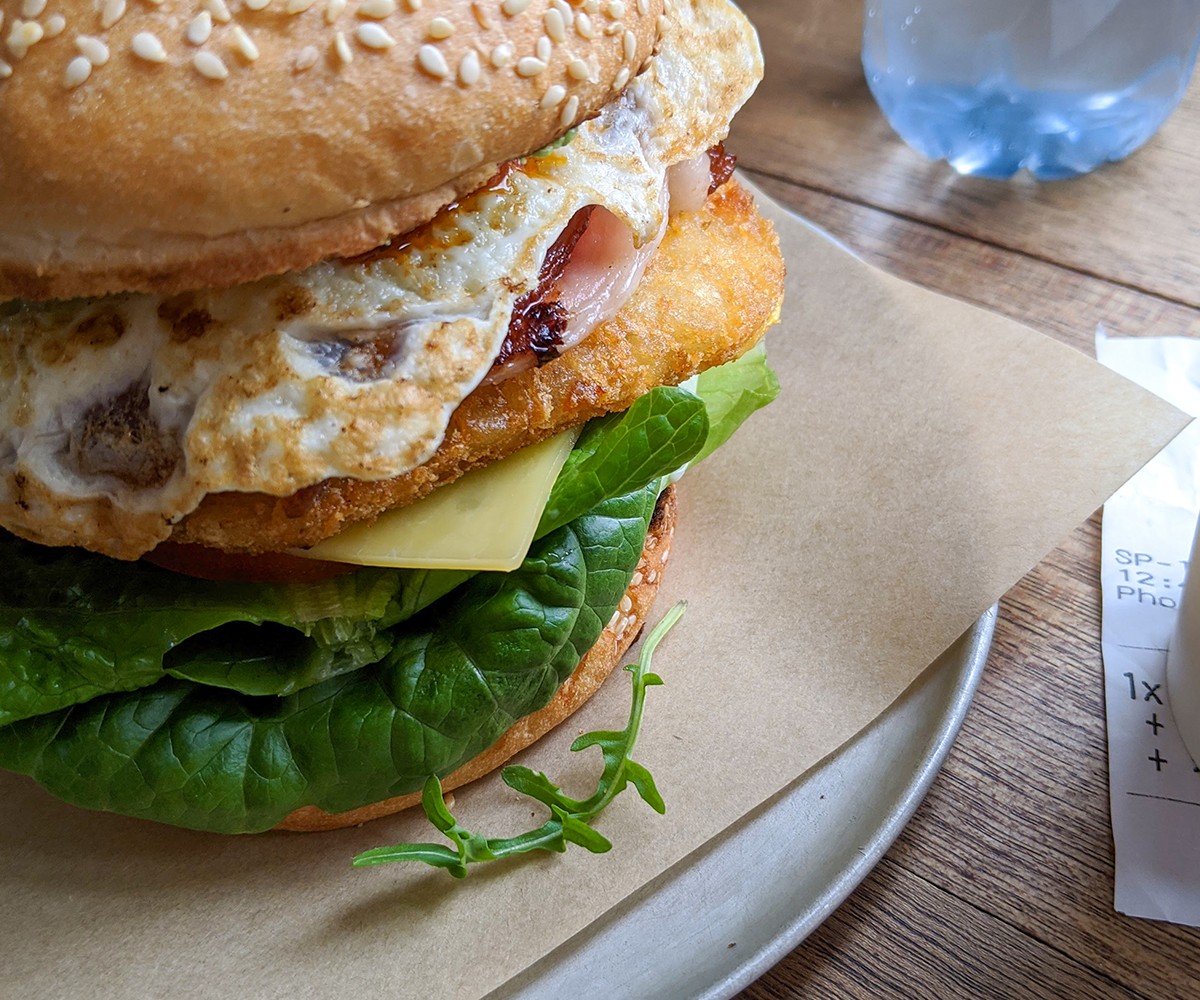Your weekend splurge didn't cause much fat gain

Did I gain weight on the weekend? What happened?
You're looking at the scales and you've gone up in weight by 1-2 kilos after a weekend binge. Your pants also feel tighter.
Well, don't panic just yet…
Firstly, I'm willing to bet you haven't overeaten broccoli or chicken breast. It's been high salt and fatty "fast" foods or something like this, right?
Knew it.
Ok, so when comparing these high fats and salty foods to what you normally eat during the week, the number on the scale is always going to go up.
The first reason this happens is because of your extra salt intake.
Sodium intake
Lots of sodium brings lots of water into your cells and increases your total body water. Foods like burgers, pizza, and deserts, all contain plenty of sodium that can wreak havoc on your body weight.
So, you jump on the scales and think you've gained fat, but what you've probably only gained is weight.
Carbohydrates
All the extra carbs from the burger bun, pizza, or ice cream? Yep, you can bet that plays a role in your scale weight too.
In fact, carbs behave similarly to sodium.
They are stored in our muscles and liver as glycogen, with every gram stored bringing in 3-4 grams of water.
So 200 grams of carbs can store 600 grams of water, which can yield about 0.6 extra grams on the scale. But consume nearly double that and it's about one kilogram; enough to freak most people out in a short time!
So don't get too bothered over carbohydrates and sodium intake, that number on the scales will disappear as the days go on (providing you return to normal eating patterns).

The other issue that can cause a rise on your scales is stress.
Stress
We're talking about an increase in cortisol, your body’s primary “stress hormone.” And increased water retention is one of the side effects.
However, cortisol isn't the enemy that some have made it out to be. It's a very misunderstood hormone.
Whilst it is known for producing the “fight or flight” response, cortisol also helps control blood pressure, increases the body’s metabolism of glucose, and reduces inflammation.
We need it to survive. But like most things, too much is not ideal.
Worrying, poor sleep, and extreme dieting can all raise cortisol levels.
Menstrual cycles
Most women know that their water weight changes at different parts of their cycles; research shows that 92% of women experience water retention in the week before their period starts.
So, if you have a big weekend of eating, and you are a week before your menstrual cycle begins, you'd be right to freak out!
Also, for both sexes, when you go from calorie-controlled days during the week, into weekend splurges, you can see how all these factors can lead to a higher number on the scales!

Ok, but is there a chance I gained some fat?
Of course, but it might not be as much as the scales suggest.
So, how much are we talking about?
Well, this study fed 16 male subjects’ 50 percent more than their maintenance level of calories for two weeks.
At the end of the study, they gained 1.4 kilograms of fat.
Not that bad considering they were bingeing for 14 days!
But what about the fat they gained after one day?
Well, the 1400 extra calories they consumed daily translated to roughly 90 grams of fat each day.
Nothing to duck off to the bathroom to cry about!
Another study recruited 29 slightly overweight men and had them eat 40 per cent more than maintenance calories for 8 weeks.
They ended up consuming around 1200-1500 extra calories per day.
They finished up gaining 4 kilograms of fat, which translates to 0.5 kilograms per week, or 70 grams of fat per day.
We're looking at around 70-90 grams of fat from a big binge (and obviously more if we exceed a 1500 calorie surplus).
So, it's not that bad. It's likely your increase in weight isn't fat, but the aforementioned factors of sodium, carbohydrates, cortisol, etc.
The bottom line on a weekend diet blowout
A weekend of big eating doesn't result in as much body fat as you might think. The extra salt, carbohydrates, cortisol, and possibly your menstrual cycle, can all increase your scale weight.
But remember, this is an increase in weight, not fat.
When we return to a more normal eating pattern, the number on the scales then goes down. A 1500 calorie surplus binge results in about 70 grams of fat gained, which isn't that much, and can be lost over a few days.

Dayne Hudson
Like many, Dayne was once desperate to lose weight and get into shape. But everyone he asked, everything he read, lead to the same place... nowhere.
His journey started there - researching science journals and completing a Sports Nutrition Specialist qualification so he could make weight loss easier.
References:
- Hammer F, Stewart PM. Cortisol metabolism in hypertension. Best Pract Res Clin Endocrinol Metab. 2006 Sep;20(3):337-53. doi: 10.1016/j.beem.2006.07.001. PMID: 16980198.
- Heer M, Frings-Meuthen P, Titze J, Boschmann M, Frisch S, Baecker N, Beck L. Increasing sodium intake from a previous low or high intake affects water, electrolyte and acid-base balance differently. Br J Nutr. 2009 May;101(9):1286-94. doi: 10.1017/S0007114508088041. PMID: 19173770.
- Hewagalamulage SD, Lee TK, Clarke IJ, Henry BA. Stress, cortisol, and obesity: a role for cortisol responsiveness in identifying individuals prone to obesity. Domest Anim Endocrinol. 2016 Jul;56 Suppl:S112-20. doi: 10.1016/j.domaniend.2016.03.004. Epub 2016 Mar 31. PMID: 27345309.
- Horton TJ, Drougas H, Brachey A, Reed GW, Peters JC, Hill JO. Fat and carbohydrate overfeeding in humans: different effects on energy storage. Am J Clin Nutr. 1995 Jul;62(1):19-29. doi: 10.1093/ajcn/62.1.19. PMID: 7598063.
- Johannsen DL, Tchoukalova Y, Tam CS, et al. Effect of 8 weeks of overfeeding on ectopic fat deposition and insulin sensitivity: testing the "adipose tissue expandability" hypothesis. Diabetes Care. 2014;37(10):2789-2797. doi:10.2337/dc14-0761
- Kreitzman SN, Coxon AY, Szaz KF. Glycogen storage: illusions of easy weight loss, excessive weight regain, and distortions in estimates of body composition. Am J Clin Nutr. 1992 Jul;56(1 Suppl):292S-293S. doi: 10.1093/ajcn/56.1.292S. PMID: 1615908.
- Singer DR, Markandu ND, Buckley MG, Miller MA, Sagnella GA, Lachno DR, Cappuccio FP, Murday A, Yacoub MH, MacGregor GA. Blood pressure and endocrine responses to changes in dietary sodium intake in cardiac transplant recipients. Implications for the control of sodium balance. Circulation. 1994 Mar;89(3):1153-9. doi: 10.1161/01.cir.89.3.1153. PMID: 8124802.





























